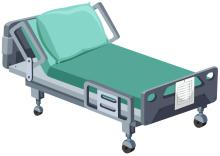חדשות המחקר
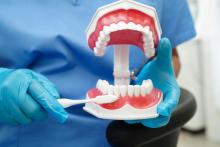
Idan Shamay: The Hard Palate Sweep: a multiplanar 2D sonographic method for the prenatal detection of cleft palate (Am J Obstet Gynecol . )
Prenatal diagnosis of cleft palate is challenging. Numerous 2D and 3D methods have been proposed to assess the integrity of the fetal palate, yet detection rate remains relatively low. We propose the "Hard Palate Sweep", a novel 2D method which enables a clear demonstration of the entire fetal palate throughout pregnancy, in a single sweep, avoiding acoustic shadows cast by surrounding bones. Objective: This study aimed to assess the feasibility and performance of the "Hard Palate Sweep", performed throughout pregnancy.

Khalaf Kridin: Are interleukin 17 and interleukin 23 inhibitors associated with malignancies?-Insights from an international population-based study (J Eur Acad Dermatol Venereol .)
Cancer risk after long-term exposure to interleukin (IL)-23 inhibitors (IL-23i) and IL-17 inhibitors (IL-17i) remains to be delineated. Objective: To evaluate the risk of malignancies in patients with psoriasis treated with IL-23i and IL-17i relative to those prescribed tumour necrosis factor inhibitors (TNFi) during the first 5 years following drug initiation.
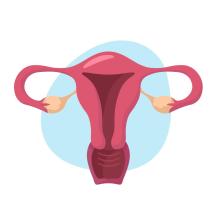
Jacob Bornstein: More Steps Forward for the Journal of Lower Genital Tract Disease (J Low Genit Tract Dis . )
DOI: 10.1097/LGT.0000000000000774

Chaim Putterman: Nano-encapsulated anandamide reduces inflammatory cytokines in vitro and lesion severity in a murine model of cutaneous lupus erythematosus (Exp Dermatol . )
Cutaneous lupus erythematosus (CLE) is a heterogeneous autoimmune skin disease which occurs independently and in conjunction with systemic lupus erythematosus. Drug development for CLE is severely lacking. Anandamide (AEA) is a primary endocannabinoid which exhibits immunomodulatory effects through mixed cannabinoid receptor agonism. We evaluated AEA as topical treatment for CLE and assessed benefits of nanoparticle encapsulation (AEA-NP) on cutaneous drug penetration, delivery and biological activity.
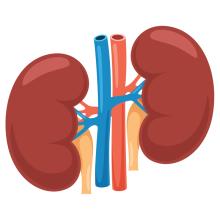
Hadas Shasha-Lavsky, Karl Skorecki, Kamal Hassan, Etty Kruzel, Khaled Khazim, Ronit Geron, Irit Weisman, Anaam Hanut, Farid Nakhoul, Gidi Rechavi: Genetic Markers Among the Israeli Druze Minority Population With End-Stage Kidney Disease (Am J Kidney Dis .
Genetic etiologies have been identified among approximately 10% of adults with chronic kidney disease. However, data are lacking regarding the prevalence of monogenic etiologies especially among members of minority groups. The objective of this study was to characterize the genetic markers among members of an Israeli minority group with end-stage kidney disease (ESKD).

Ethnic disparities in presentation but not outcome in multiple myeloma patients: a multicenter retrospective study in Northern Israel (Leuk Lymphoma . )
Several studies showed ethnic disparities in multiple myeloma (MM) incidence and prognosis. In order to compare prognosis and overall survival between different ethnic groups, a multicenter retrospective study was conducted in Northern Israel.
(Najib Dally, Myriam Baranes, Luiza Akria, Marat Kashlikov, Khalil Tarabia, Adi Sharabi-Nov, Celia Suriu, Andrei Braester)

The Utility of Maternal TORCH Screening Due to Obstetrical Indications in Detecting Congenital Infections: A Retrospective Observational Study (Pediatr Infect Dis J .)
The diagnostic yield of TORCH screening for obstetrical indications is unclear. We evaluated TORCH testing results among women with intrauterine growth restriction (IUGR), polyhydramnios and oligohydramnios; and associations with congenital infections in neonates.
(Raneen Abu Shqara, Shany Or, Abdallah Abu Zraki, Jeries Rizik, Daniel Glikman, Hagai Rechnitzer, Lior Lowenstein, Maya Frank Wolf )
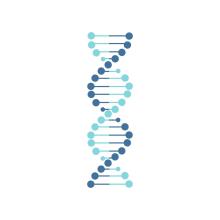
Case report: Novel insights into hemorrhagic destruction of the brain, subependymal calcification, and cataracts disease
Pathogenic variants of the junctional adhesion molecule 3 (JAM3/JAM-C; OMIM#606871) is the cause of the rare recessive disorder called hemorrhagic destruction of the brain, subependymal calcification, and cataracts (HDBSCC, OMIM#613730) disease. A similar phenotype is universal, including congenital cataracts and brain hemorrhages with high mortality rate in the first few weeks of life and with a poor neurologic outcome in survivors. We aim to describe and enlighten novel phenotype and genotype of a new patient and review the literature regarding all reported patients worldwide.
(Tameemi Abdallah Moady, Marwan Odeh, Ayalla Fedida, Zvi Segal, Maayan Gruber, Moshe Goldfeld, Limor Kalfon, Tzipora C Falik-Zaccai)
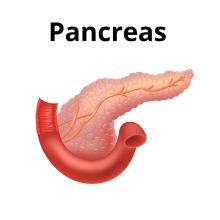
Tawfik Khoury, Wisam Sbeit: Safety and Efficacy of Endoscopic Ultrasound-guided Radiofrequency Ablation for Pancreatic Neuroendocrine Neoplasms: Systematic Review and Meta-analysis (Dig Endosc . )
Endoscopic ultrasound guided radiofrequency ablation (EUS-RFA) has been constantly increasing, particularly in the treatment of pancreatic neuroendocrine neoplasms (pNENs). While emerging data in this field are accumulating, we aimed to assess the pooled efficacy and safety of EUS-RFA for pNENs.
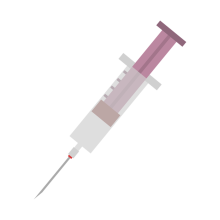
Wisam Sbeit, Nidaa Abu Hanna, Livoff Alejandro, Tawfik Khoury: The yield of cytology and histology obtained by endoscopic ultrasound-guided fine needle aspiration and biopsy needles in the diagnosis of pancreatic adenocarcinoma (Cytopathology .)
Endoscopic ultrasound-guided fine needle aspiration and biopsy (EUS-FNA, -FNB) are the mainstay for tissue diagnosis of pancreatic lesions. Traditionally, FNA was performed for obtaining cytology and also histology if available from the puncture. Since their advent, however, FNB needles have been intended mainly to obtain core biopsies for histological specimens. Aims: We aimed to assess the yield of cytology obtained via both FNA and FNB needles.
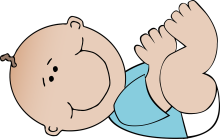
Eric S Shinwell: Two-Year Outcomes After Minimally Invasive Surfactant Therapy in Preterm Infants: Follow-Up of the OPTIMIST-A Randomized Clinical Trial (JAMA .)
The long-term effects of surfactant administration via a thin catheter (minimally invasive surfactant therapy [MIST]) in preterm infants with respiratory distress syndrome remain to be definitively clarified. Objective: To examine the effect of MIST on death or neurodevelopmental disability (NDD) at 2 years' corrected age.
Galia Stemer, Shai Yagna, Najib Dally: MDS-Related Anemia Is Associated with Impaired Quality of Life but Improvement Is Not Always Achieved by Increased Hemoglobin Level (J Clin Med .)
Quality of life is impaired in MDS, but the role of hemoglobin level is unclear. To study the Hb-QoL correlation at diagnosis and 1 year later, patients filled out the EQ-5D questionnaire, assessing their mobility, self care, daily activities, pain/discomfort, and anxiety/depression, using scores of 0 (normal), 1 (mild/moderate), or 2 (poor).
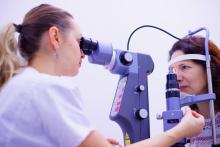
Cohen Yuval, Chassid Otzem: Evaluating the Effect of a Myopia Control Spectacle Lens Among Children in Israel: 12-Month Results (Am J Ophthalmol .)
Investigates the effectiveness of a novel spectacle lens designed to slow the progression of myopia in children.

Firas Sabbah, Mohammad E Naffaa: Outcomes in progressive systemic sclerosis treated with autologous hematopoietic stem cell transplantation compared with combination therapy (Rheumatology (Oxford) . )
Autologous hematopoietic stem cell transplantation (AHSCT) has been shown to improve long-term survival for early diffuse progressive systemic sclerosis (SSc) compared with cyclophosphamide. Cyclophosphamide, however, does not provide a long-term benefit in SSc. The combination of mycophenolate mofetil (MMF) and rituximab is a potent alternative regimen. We aimed to retrospectively compare the outcomes of SSc patients who underwent AHSCT to patients who met the eligibility criteria for AHSCT but received upfront combination therapy with MMF and rituximab.



